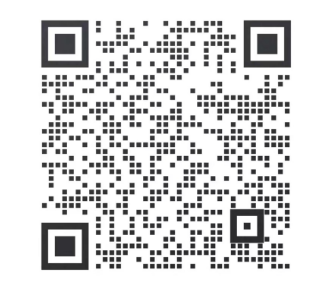目录
PART I 第一部分THE IDEA 想法
PART II 第二部分A GREAT TEAM 一个伟大的团队
PART III 第三部分A GREAT PRODUCT 很棒的产品
PART IV 第四部分GREAT EXECUTION 出色的执行力
PART IV: EXECUTION 第四部分:执行GROWTH 生长
PART IV: EXECUTION 第四部分:执行FOCUS & INTENSITY 焦点和强度
PART IV: EXECUTION 第四部分:执行JOBS of the CEO 首席执行官的职位
PART IV: EXECUTION 第四部分:执行HIRING & MANAGING 招聘与管理
PART IV: EXECUTION 第四部分:执行COMPETITORS 竞争对手
This is meant for people new to the world of startups. Most of this will not be new to people who have read a lot of what YC partners have written—the goal is to get it into one place.
这适用于刚接触初创企业世界的人。对于读过大量 YC 合作伙伴所写内容的人来说,其中大部分内容并不陌生——目标是将其集中到一个地方。
There may be a part II on how to scale a startup later—this mostly covers how to start one.
稍后可能会有第二部分介绍如何扩大初创公司的规模——这主要涵盖如何创办一家公司。
PART I 第一部分THE IDEA 想法
Your goal as a startup is to make something users love. If you do that, then you have to figure out how to get a lot more users. But this first part is critical—think about the really successful companies of today. They all started with a product that their early users loved so much they told other people about it. If you fail to do this, you will fail. If you deceive yourself and think your users love your product when they don’t, you will still fail.
作为一家初创公司,你的目标是做出用户喜欢的东西。如果你这样做,那么你必须弄清楚如何获得更多用户。但这第一部分至关重要——想想当今真正成功的公司。他们都从早期用户非常喜欢的产品开始,并告诉其他人。如果你做不到这一点,你就会失败。如果你欺骗自己并认为你的用户喜欢你的产品,但实际上他们并不喜欢你的产品,那么你仍然会失败。
The startup graveyard is littered with people who thought they could skip this step.
初创公司的坟墓里到处都是那些认为自己可以跳过这一步的人。
It’s much better to first make a product a small number of users love than a product that a large number of users like. Even though the total amount of positive feeling is the same, it’s much easier to get more users than to go from like to love.
首先做一个少数用户喜欢的产品比做大量用户喜欢的产品要好得多。尽管积极感觉的总量是相同的,但获得更多用户比从喜欢到喜爱要容易得多。
A word of warning about choosing to start a startup: It sucks! One of the most consistent pieces of feedback we get from YC founders is it’s harder than they could have ever imagined, because they didn’t have a framework for the sort of work and intensity a startup entails. Joining an early-stage startup that’s on a rocketship trajectory is usually a much better financial deal.
关于选择创业的一个警告:这很糟糕!我们从 YC 创始人那里得到的最一致的反馈之一是,这比他们想象的要困难,因为他们没有一个框架来适应初创公司所需的工作类型和强度。加入一家处于火箭发展轨道上的早期初创公司通常是一笔更好的财务交易。
On the other hand, starting a startup is not in fact very risky to your career—if you’re really good at technology, there will be job opportunities if you fail. Most people are very bad at evaluating risk. I personally think the riskier option is having an idea or project you’re really passionate about and working at a safe, easy, unfulfilling job instead.
另一方面,创业实际上对你的职业生涯来说风险并不大——如果你真的擅长技术,即使失败也会有工作机会。大多数人都不善于评估风险。我个人认为风险更大的选择是拥有一个你真正热衷的想法或项目,然后从事一份安全、轻松、没有成就感的工作。
To have a successful startup, you need: a great idea (including a great market), a great team, a great product, and great execution.
要拥有一个成功的初创公司,你需要:一个伟大的想法(包括一个伟大的市场)、一个伟大的团队、一个伟大的产品和伟大的执行力。

One of the first things we ask YC companies is what they’re building and why.
我们首先询问 YC 公司的问题之一是他们正在构建什么以及为什么构建。
We look for clear, concise answers here. This is both to evaluate you as a founder and the idea itself. It’s important to be able to think and communicate clearly as a founder—you’ll need it for recruiting, raising money, selling, etc. Ideas in general need to be clear to spread, and complex ideas are almost always a sign of muddled thinking or a made up problem. If the idea does not really excite at least some people the first time they hear it, that’s bad.
我们在这里寻找清晰、简洁的答案。这既是对你作为创始人的评估,也是对这个想法本身的评估。作为创始人,能够清晰地思考和沟通非常重要——你需要它来招聘、筹集资金、销售等。一般来说,想法需要清晰地传播,而复杂的想法几乎总是思维混乱的表现或一个虚构的问题。如果这个想法至少在某些人第一次听到时并没有真正激发他们的兴趣,那就糟糕了。
Another thing we ask is who desperately needs the product.
我们问的另一件事是谁迫切需要该产品。
In the best case, you yourself are the target user. In the second best case, you understand the target user extremely well.
在最好的情况下,您自己就是目标用户。在第二种最佳情况下,您非常了解目标用户。
If a company already has users, we ask how many and how fast that number is growing. We try to figure out why it’s not growing faster, and we especially try to figure out if users really love the product. Usually this means they’re telling their friends to use the product without prompting from the company. We also ask if the company is generating revenue, and if not, why not.
如果一家公司已经拥有用户,我们会询问有多少用户以及该数字增长的速度。我们试图弄清楚为什么它没有更快地增长,我们特别试图弄清楚用户是否真的喜欢这个产品。通常这意味着他们告诉朋友在没有公司提示的情况下使用该产品。我们还询问该公司是否正在产生收入,如果没有,为什么没有。
If the company doesn’t yet have users, we try to figure out the minimum thing to build first to test the hypothesis—i.e., if we work backwards from the perfect experience, we try to figure out what kernel to start with.
如果公司还没有用户,我们会尝试找出首先要构建的最小内容来测试假设,即,如果我们从完美体验开始向后推,我们会尝试找出从哪个内核开始。
The way to test an idea is to either launch it and see what happens or try to sell it (e.g. try to get a letter of intent before you write a line of code.) The former works better for consumer ideas (users may tell you they will use it, but in practice it won’t cut through the clutter) and the latter works better for enterprise ideas (if a company tells you they will buy something, then go build it.) Specifically, if you are an enterprise company, one of the first questions we’ll ask you is if you have a letter of intent from a customer saying they’ll buy what you’re building. For most biotech and hard tech companies, the way to test an idea is to first talk to potential customers and then figure out the smallest subset of the technology you can build first.
测试一个想法的方法是要么启动它并看看会发生什么,要么尝试出售它(例如,在编写一行代码之前尝试获得一封意向书。)前者更适合消费者想法(用户可能会告诉你他们会使用它,但实际上它不会消除混乱)而后者更适合企业创意(如果一家公司告诉你他们会购买某些东西,那么就去构建它。)具体来说,如果你是一家企业公司,我们会问您的第一个问题是您是否有客户的意向书表明他们会购买您正在构建的产品。对于大多数生物技术和硬技术公司来说,测试想法的方法是首先与潜在客户交谈,然后找出可以首先构建的技术的最小子集。
It’s important to let your idea evolve as you get feedback from users. And it’s critical you understand your users really well—you need this to evaluate an idea, build a great product, and build a great company.
当您收到用户的反馈时,让您的想法不断发展非常重要。真正了解你的用户至关重要——你需要它来评估一个想法、构建一个伟大的产品并建立一个伟大的公司。
As mentioned earlier, startups are really hard. They take a very long time, and consistent intense effort. The founders and employees need to have a shared sense of mission to sustain them. So we ask why founders want to start this particular company.
正如前面提到的,创业真的很难。他们需要很长的时间和持续不断的努力。创始人和员工需要有共同的使命感来维持他们。因此,我们要问创始人为什么想要创办这家特定的公司。
We also ask how the company will one day be a monopoly. There are a lot of different terms for this, but we use Peter Thiel’s. Obviously, we don’t want your company to behave in an unethical way against competitors. Instead, we’re looking for businesses that get more powerful with scale and that are difficult to copy.
我们还想知道,该公司有一天将如何成为垄断企业。有很多不同的术语,但我们使用 Peter Thiel 的术语。显然,我们不希望贵公司对竞争对手采取不道德的行为。相反,我们正在寻找规模更大且难以复制的企业。
Finally, we ask about the market. We ask how big it is today, how fast it’s growing, and why it’s going to be big in ten years. We try to understand why the market is going to grow quickly, and why it’s a good market for a startup to go after. We like it when major technological shifts are just starting that most people haven’t realized yet—big companies are bad at addressing those. And somewhat counterintuitively, the best answer is going after a large part of a small market.
最后,我们询问市场情况。我们问它今天有多大,增长有多快,以及为什么十年后它会变得很大。我们试图理解为什么这个市场会快速增长,以及为什么这是一个适合初创公司追求的好市场。我们喜欢重大技术变革刚刚开始,而大多数人还没有意识到——大公司不擅长解决这些问题。有点违反直觉的是,最好的答案是追求小市场的大部分。
A few other thoughts on ideas:
关于想法的其他一些想法:
We greatly prefer something new to something derivative. Most really big companies start with something fundamentally new (one acceptable definition of new is 10x better.) If there are ten other companies starting at the same time with the same plan, and it sounds a whole lot like something that already exists, we are skeptical.
与衍生品相比,我们更喜欢新的东西。大多数真正的大公司都是从根本上新的东西开始的(新的一个可接受的定义是好十倍。)如果有其他十家公司同时开始执行相同的计划,并且这听起来很像已经存在的东西,那么我们就是持怀疑态度。
One important counterintuitive reason for this is that it’s easier to do something new and hard than something derivative and easy. People will want to help you and join you if it’s the former; they will not if it’s the latter.
造成这种情况的一个重要的违反直觉的原因是,做一些新的、困难的事情比做一些衍生的、简单的事情更容易。如果是前者,人们会想要帮助你并加入你;如果是后者,他们就不会。
The best ideas sound bad but are in fact good. So you don’t need to be too secretive with your idea—if it’s actually a good idea, it likely won’t sound like it’s worth stealing. Even if it does sound like it’s worth stealing, there are at least a thousand times more people that have good ideas than people who are willing to do the kind of work it takes to turn a great idea into a great company. And if you tell people what you’re doing, they might help.
最好的想法听起来很糟糕,但实际上是好的。所以你不需要对你的想法过于保密——如果它实际上是一个好主意,它可能听起来不值得窃取。即使听起来确实值得窃取,但拥有好创意的人数至少比愿意付出努力将好创意变成一家伟大公司的人数多一千倍。如果你告诉人们你在做什么,他们可能会有所帮助。
Speaking of telling people your idea—while it’s important the idea really excites some people the first time they hear it, almost everyone is going to tell you that your idea sucks. Maybe they are right. Maybe they are not good at evaluating startups, or maybe they are just jealous. Whatever the reason is, it will happen a lot, it will hurt, and even if you think you’re not going to be affected by it, you still will be. The faster you can develop self-belief and not get dragged down too much by haters, the better off you’ll be. No matter how successful you are, the haters will never go away.
说到告诉人们你的想法——虽然这个想法确实让一些人第一次听到它时感到兴奋很重要,但几乎每个人都会告诉你你的想法很糟糕。也许他们是对的。也许他们不擅长评估初创公司,或者也许他们只是嫉妒。无论原因是什么,这种情况都会发生很多次,会造成伤害,即使你认为自己不会受到影响,但你仍然会受到影响。你越快培养自信并且不被仇恨者拖垮太多,你的生活就会越好。无论你多么成功,仇恨者永远不会消失。
What if you don’t have an idea but want to start a startup? Maybe you shouldn’t. It’s so much better if the idea comes first and the startup is the way to get the idea out into the world.
如果你没有想法但想创业怎么办?也许你不应该。如果这个想法是第一位的,并且初创公司是将这个想法推向世界的方式,那就更好了。
We once tried an experiment where we funded a bunch of promising founding teams with no ideas in the hopes they would land on a promising idea after we funded them.
我们曾经尝试过一个实验,我们资助了一群有前途但没有想法的创始团队,希望他们在我








